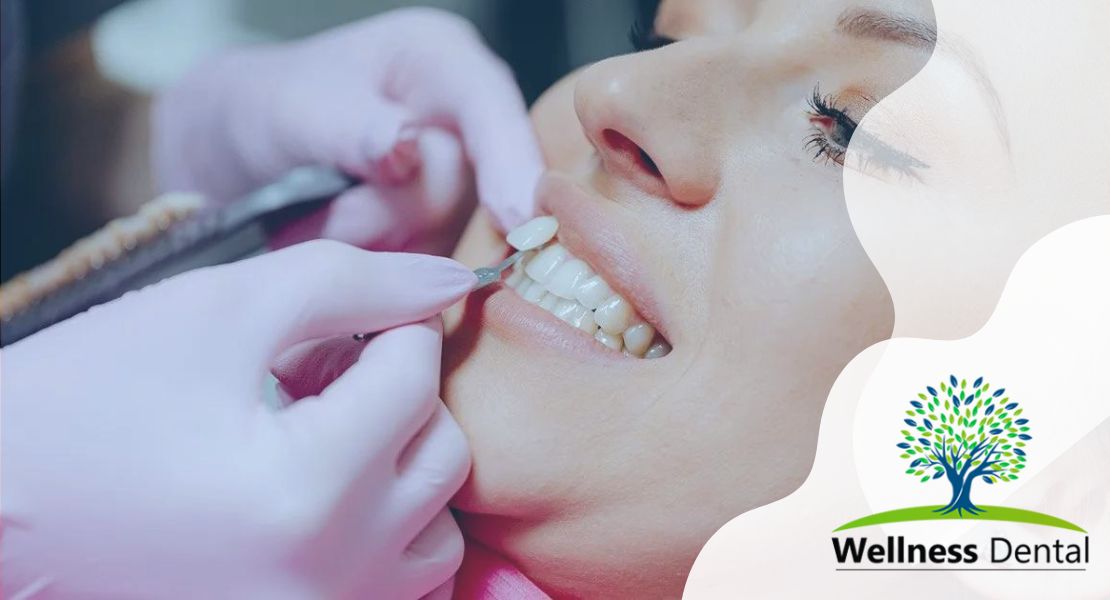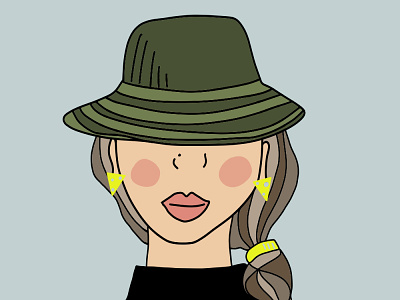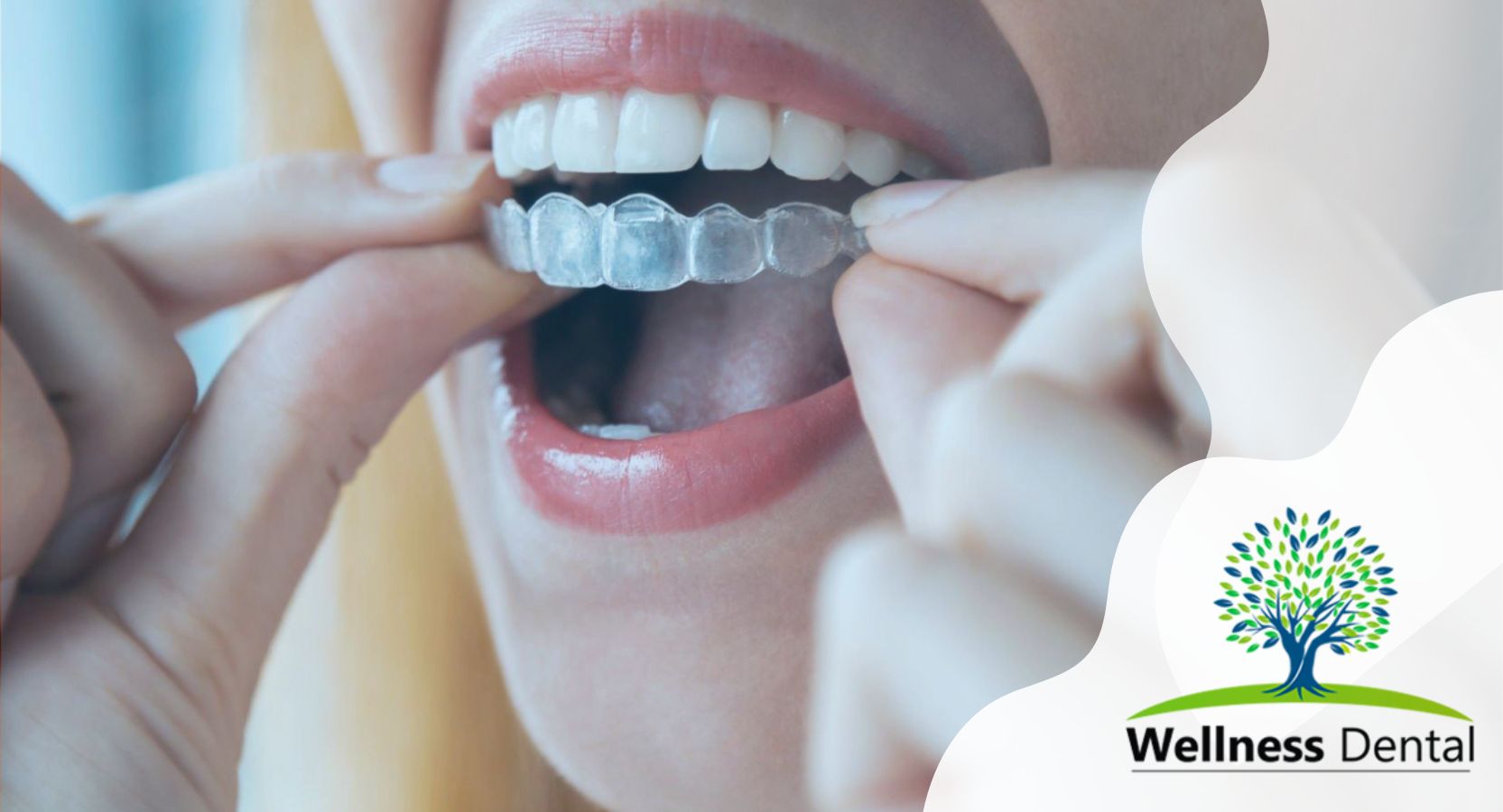A sudden, sharp jolt of pain in the mouth can be indicative of a dental issue, such as a chip to the tooth. Such a condition can create substantial discomfort and self-consciousness. But don’t worry, with the right information on how to best deal with it, you can restore your smile back to its original state. In this article, we discuss what’s the big deal about a chipped tooth, its causes and risk factors, symptoms to look out for, treatment options, and more. Read on to learn all you need to know about chipped teeth!
How to Deal With a Chipped Tooth?
When it comes to dealing with a chipped tooth, it’s always important to seek professional help. Dr. Kenny, an expert in dental health and is here to help you understand what’s the best course of action for your particular situation. He explains that the most important thing to do when you have a chipped tooth is not to panic, as there are several treatment options available.
Depending on the size of the chip and its location, you may need porcelain veneers, composite bonding or even crowns in order to repair your teeth. To determine which type of restoration is best for you, it’s important to consult with a qualified dentist who can assess the extent of damage and recommend a course of action.
What are the Implications of Chipped Teeth?

A chipped tooth is more than just an aesthetic issue; it can be a sign of a bigger dental problem. When a tooth chips, the enamel on the surface that protects the dentin layer of the tooth is damaged, leaving it vulnerable to further damage and decay. A chip in your teeth can also lead to increased sensitivity and pain.
Furthermore, if left untreated, the chip can open up pathways for bacteria or food particles to enter and cause infections or cavities. This is why it’s important to seek out professional help as soon as you notice that your tooth has been chipped to ensure proper treatment and prevention of any further complications.
Causes of chipped teeth
Chipped teeth can be caused by a range of factors, from everyday habits to traumatic incidents. Biting down on hard substances such as ice or hard candy, playing contact sports without a mouth guard, and grinding your teeth when you sleep are all common causes of chipped teeth. Additionally, falls or car accidents can cause trauma to the mouth, which can result in a chipped tooth. Teeth that are already weakened from decay are also more likely to chip if subjected to any of these activities.
It is important to take action as soon as possible if you notice that one of your teeth has become chipped. The protective enamel layer of the tooth is damaged when it chips, leaving it vulnerable to further damage and decay.
Additionally, the chip can open up pathways for bacteria or food particles to enter and cause infections or cavities. Visiting your dentist will help ensure proper treatment and prevention of any further complications resulting from the chipped tooth.
Risk factors for chipped teeth
Certain habits and conditions can make individuals more susceptible to chipping their teeth. People who have poor dental hygiene, such as those who don’t brush or floss regularly, are at a higher risk for developing weakened enamel, which can lead to chipping.

Additionally, eating a lot of acidic foods and beverages can erode tooth enamel and leave them more likely to chip. People with crooked or crowded teeth also have an increased risk for chipped teeth because the teeth may not align properly when chewing, leading to uneven pressure and stress on the teeth.
Finally, grinding your teeth at night is another possible cause of chipped teeth. This habit causes extreme pressure on the enamel and can lead to weakening or cracking over time. If you think you may be grinding your teeth while sleeping, it’s important to talk to your dentist as soon as possible in order to prevent further damage from occurring.
Which teeth are at risk?
The teeth most at risk for chipping are those that are already weakened from decay or fillings. This includes the second lower molar, which is prone to taking a lot of pressure when chewing. Other teeth at risk are those with crookedness or crowding, as these teeth may not align properly during chewing, leading to uneven stress and pressure on the enamel. Finally, any tooth with an existing filling is more likely to chip due to weakened enamel.
In addition to these specific teeth, any tooth can be subject to chipping if certain habits and conditions are present. Poor dental hygiene, eating acidic foods and beverages, grinding your teeth at night, or having extreme wear and tear due to aggressive brushing can all increase your risk of developing a chipped tooth.
Symptoms of a chipped tooth
If you have a chipped tooth, you may experience a range of symptoms. The most obvious sign is the presence of an uneven or jagged surface on your teeth when you run your tongue over it. Other signs include irritation of the gum around the chipped tooth, irritation of your tongue from “catching” it on the rough edge, and even pain when biting down if the chip is near to or exposes the nerves in the tooth.
You may also notice changes in how your teeth fit together when you bite down, as well as heightened sensitivity to hot and cold temperatures. If left untreated, a chipped tooth can lead to further problems like infection and decay. It’s important to seek immediate dental care if you think you have a chipped tooth so that it can be treated and restored to its original condition.
Small Chips

Small chips in a tooth may seem insignificant but can have serious consequences if left untreated. A small chip can cause irritation to the gum and tongue, as well as pain when biting down if the chip exposes the nerves in the tooth. It can also lead to changes in how your teeth fit together when you bite down, increased sensitivity to hot and cold temperatures, and even infection and decay if left untreated.
Fortunately, treating a small chip is usually straightforward. Our dentist can use a polishing instrument to remove any rough edges from the chip and smooth out its surface.
Bonding is another option in which our dentist applies materials to the surface of your teeth that help to maintain their structure and appearance. Porcelain veneers are also an option for chipped teeth.
If you think you have a small chip in your tooth, seek dental care right away to prevent further damage or complications such as infection or decay.
Medium Chips
Medium chips in a tooth can be more serious than small chips, as they often expose the underlying layers of your teeth and can lead to pain, infection, and decay if left untreated. The size of the chip will determine how our dentist approaches treating it.
For medium-sized chips, our dentist may recommend dental bonding or porcelain veneers in order to restore the structure of your tooth. Dental bonding involves applying materials to the surface of your teeth that help to maintain its structure and appearance.
Porcelain veneers are thin shells applied over the front surface of your teeth for cosmetic purposes as well as for protection from further damage.
In some cases, our dentist may have to remove some of the damaged enamel before any restorative treatments can be performed. This is done to prevent potential infections and decay caused by exposure of the inner layers of your tooth.
If you think you have a medium-sized chip in your tooth, seek professional dental care right away so that our dentist can assess it and provide treatment if necessary.
Large Chips

Large chips in a tooth can be very serious, as they often expose the underlying layers of your teeth and can lead to pain, infection, and decay if left untreated. If you think you have a large chip in your tooth, it is important to seek professional dental care right away so that our dentist can assess it and provide treatment if necessary.
Our dentist may need to remove some of the damaged enamel before any restorative treatments can be performed. This is done to prevent potential infections and decay caused by exposure to the inner layers of your tooth. Depending on the size and location of the chip, our dentist may recommend dental bonding or porcelain veneers in order to restore its structure and appearance.
Dental bonding involves applying materials to the surface of your teeth that help to maintain its structure and look, while porcelain veneers are thin shells applied over the front surface of your teeth for cosmetic purposes as well as for protection from further damage.
In most cases, prompt attention from a qualified dental professional is required when dealing with large chips in order to receive fast relief from pain while also increasing the likelihood that you can preserve the look of your smile even if a root canal or crown is necessary. Don’t hesitate – to contact our dental office today for an evaluation and discuss treatment options for large chips!
Distinguishing Between a Chipped Tooth and a Broken Tooth
Distinguishing between a chipped tooth and a broken tooth can be difficult, but it is important in order to determine the best course of action for treatment. A chipped tooth typically involves just a small portion of enamel being broken off, while a broken tooth usually means that the entire crown has cracked or split.
A chipped tooth can usually be repaired with a dental filling or bonding material in one visit to our office. This helps restore the structure and appearance of your smile. On the other hand, if you have a broken tooth, we may need to file part of the remaining tooth before covering it with a crown. In some cases, root canal therapy may be necessary before your crown placement as well. Getting a crown usually requires two visits to our office.
It is essential to seek professional dental care right away if you think you have either a chipped or broken tooth in order to receive fast relief from pain and prevent any potential infections from occurring. Contact us today for an evaluation, so we can help determine which type of damage has occurred and provide you with the best course of action for restoring your beautiful smile!
What to Do If You Chipped a Tooth
If you’ve recently chipped a tooth, the first step is to rinse your mouth with warm water. This will help clear away any debris and soothe pain that may be present. After rinsing, it is important to seek professional dental care in order to determine the best course of action for your treatment.
Typically, if you have a chipped tooth, it can be repaired with a dental filling or bonding material. This helps restore the structure and appearance of your smile in just one visit to our office. However, if you have a broken tooth, we may need to file part of the remaining tooth before covering it with a crown, which usually requires two visits. In some cases, root canal therapy may also be necessary before crown placement as well.
It is essential to seek professional dental care right away if you think you have either a chipped or broken tooth in order to receive fast relief from pain and prevent any potential infections from occurring.
My Child Just Chipped a Tooth. Now What?
If your child has recently chipped a tooth, it is important to remain calm and seek professional dental care right away. The first step to take is to rinse the mouth with warm water in order to clear any debris and soothe pain that may be present. Depending on the severity of the chip, our team of experienced dentists can repair it with either a dental filling or bonding material. In some cases, root canal therapy may be necessary before crown placement as well.
It is crucial to get fast relief from any pain your child may experience as well as prevent any potential infections from occurring. If you are ever unsure about what steps to take, do not hesitate to contact us for an evaluation, and we will help determine which type of damage has occurred and provide you with the best course of action for restoring your child’s beautiful smile!
Treatment Options for Chipped Teeth

Treatment for chipped teeth varies depending on the extent of the chip. For minor chips, a filling or bonding material may be used to fill in the chip and restore your tooth’s natural shape and appearance. If the damage is more extensive, a dental crown may be needed to cover and protect the damaged area. Root canal therapy may also be necessary before crown placement.
If you are experiencing any pain or discomfort due to a chipped tooth, it is important to seek professional dental care right away. At our dentistry, we offer fast relief from pain as well as the prevention of potential infections. Our team of experienced dentists can assess the damage and recommend a course of action that best suits your needs. We will do our best to restore your tooth’s beautiful smile!







I am grateful for the publication of the comprehensive article.
Thank you for writing such an informative article on dealing with a chipped tooth. It’s essential to understand the causes, symptoms, and treatment options available for chipped teeth, as it can be a painful and stressful experience.